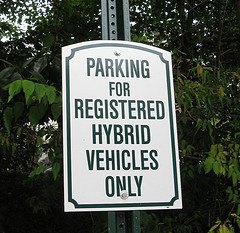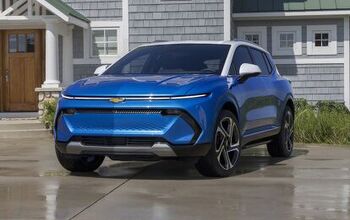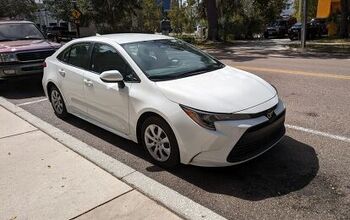Japan To Set World Standard For Hybrids And EVs

The United Nations UNECE World Forum for Harmonization of Vehicle Regulations is likely to adopt many Japanese safety rules for hybrid and electric vehicles as a global standard, says the Nikkei [sub].
Currently, there are no ECE safety standards for hybrid and electric vehicles. Japan has pushed its domestic safety rules to be adopted as international standards. Chances for adoption are good, Japanese companies and rulemakers are the pioneers in the field. Europe, which usually dominates ECE rule making, is lagging behind in the development of hybrid and electric vehicles, and doesn’t have much to lose if the Japanese standards are accepted.
53 countries are members of the World Forum for Harmonization of Vehicle Regulations. They implement the well over 100 ECE regulations to varying degrees. The EU usually adopts most ECE regulations. By the end of 2008, Japan had included 35 ECE regulations in its JASIC rules. (Quite curiously, the most fervent adopter of ECE regulations is the Russian Federation. By the end of 2008, Russia had signed 123 of the 127 ECE regulations into law. The EU had adopted 105.)
If Japanese rules for hybrid and electric vehicles are adopted as global standards, Toyota and Honda should be the main beneficiaries. They will be able to continue selling their Prius and Insight hybrid vehicles without much modification.
Notably absent for the World Forum are the U.S.A. and Canada. Many other countries, even if not formally participating in the 1958 agreement, recognize the ECE Regulations and either mirror the ECE Regulations in their own national rules, or permit the use and importation of ECE-approved vehicles, or both.
Hopefully, worldwide adoption of Japan’s standards for hybrid and electric vehicles will entice Japan to adopt more ECE rules. It would be a big step towards a world of internationally accepted safety and emission regulations, a world from which the U.S.A. decided to isolate itself. Which is one of the reasons why U.S. car exports don’t fare too well in the world.

Bertel Schmitt comes back to journalism after taking a 35 year break in advertising and marketing. He ran and owned advertising agencies in Duesseldorf, Germany, and New York City. Volkswagen A.G. was Bertel's most important corporate account. Schmitt's advertising and marketing career touched many corners of the industry with a special focus on automotive products and services. Since 2004, he lives in Japan and China with his wife <a href="http://www.tomokoandbertel.com"> Tomoko </a>. Bertel Schmitt is a founding board member of the <a href="http://www.offshoresuperseries.com"> Offshore Super Series </a>, an American offshore powerboat racing organization. He is co-owner of the racing team Typhoon.
More by Bertel Schmitt
Latest Car Reviews
Read moreLatest Product Reviews
Read moreRecent Comments
- Jkross22 When I think about products that I buy that are of the highest quality or are of great value, I have no idea if they are made as a whole or in parts by unionized employees. As a customer, that's really all I care about. When I think about services I receive from unionized and non-unionized employees, it varies from C- to F levels of service. Will unionizing make the cars better or worse?
- Namesakeone I think it's the age old conundrum: Every company (or industry) wants every other one to pay its workers well; well-paid workers make great customers. But nobody wants to pay their own workers well; that would eat into profits. So instead of what Henry Ford (the first) did over a century ago, we will have a lot of companies copying Nike in the 1980s: third-world employees (with a few highly-paid celebrity athlete endorsers) selling overpriced products to upper-middle-class Americans (with a few urban street youths willing to literally kill for that product), until there are no more upper-middle-class Americans left.
- ToolGuy I was challenged by Tim's incisive opinion, but thankfully Jeff's multiple vanilla truisms have set me straight. Or something. 😉
- ChristianWimmer The body kit modifications ruined it for me.
- ToolGuy "I have my stance -- I won't prejudice the commentariat by sharing it."• Like Tim, I have my opinion and it is perfect and above reproach (as long as I keep it to myself). I would hate to share it with the world and risk having someone critique it. LOL.


































Comments
Join the conversation
The U.S. standards have often been ahead of everyone else's. When I lived in Germany in 1984 the Europeans were just starting to introduce lead-free gasoline so they could have stronger emission controls (with catalytic converters). One of the big debates I heard was whether laminated windshields should be required. With the increased globalization of the auto industry since then, however, global standards make a lot of sense.
hm, I wonder if a pure EV parked in front of the sign in the picture would get a ticket...